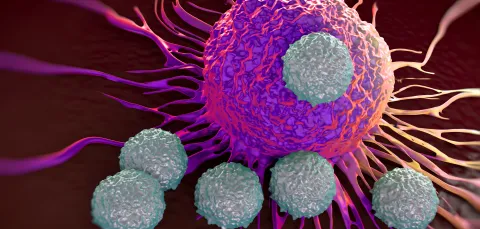The Spironolactone for Adult Female Acne (SAFA) study is the first large-scale clinical trial to provide evidence that the drug, which is commonly prescribed for high blood pressure, is effective in treating acne.
Miriam Santer, a Professor of Primary Care Research, led the research that was run by Southampton Clinical Trials Unit. The findings are expected to change the way acne in women is routinely treated, improve acne outcomes, and reduce the large amount of antibiotics currently prescribed for the condition.
A need for new acne treatments
Acne is very common, particularly in adolescence, and often clears with age. But almost a third of women continue to be affected in adulthood and this can be a huge physical and psychological burden to those who suffer from persistent outbreaks.
Topical treatments such as creams and gels are the first-line treatment and are effective for many people. But if they don’t work, GPs will often prescribe long courses of oral antibiotics to be used alongside these treatments. This can add to the growing burden of antibiotic resistance in the population.
Previous Southampton research showed that long-term prescriptions of antibiotics for acne account for more than two thirds of the total antibiotic exposure among people aged 11 to 21.
Researching an alternative
Although dermatologists have been prescribing spironolactone for several years to treat severe acne, previous studies had been very small and hadn’t provided proof that it was effective.
The SAFA study was funded by the National Institute for Health and Care Research (NIHR) and involved Miriam working with dermatologist Professor Alison Layton from Harrogate and District NHS Foundation Trust, and the Skin Research Centre at the University of York.
More than 400 women over 18, who had had acne for more than 6 months, were recruited to the trial. Half were randomly allocated spironolactone, while the other half were given a placebo.
The results showed that the women taking spironolactone saw a significant improvement in their acne after 12 and 24 weeks compared to those on the placebo. They also reported that side effects were uncommon and minor.
Professor Andrew Farmer, Director of NIHR’s Health Technology Assessment Programme, says : “The findings from this important trial provide compelling evidence which could help thousands of women affected by persistent acne.
“The treatment provides a valuable alternative to antibiotics and ensures clinicians can also better avoid the harms that can arise from antimicrobial resistance.”







